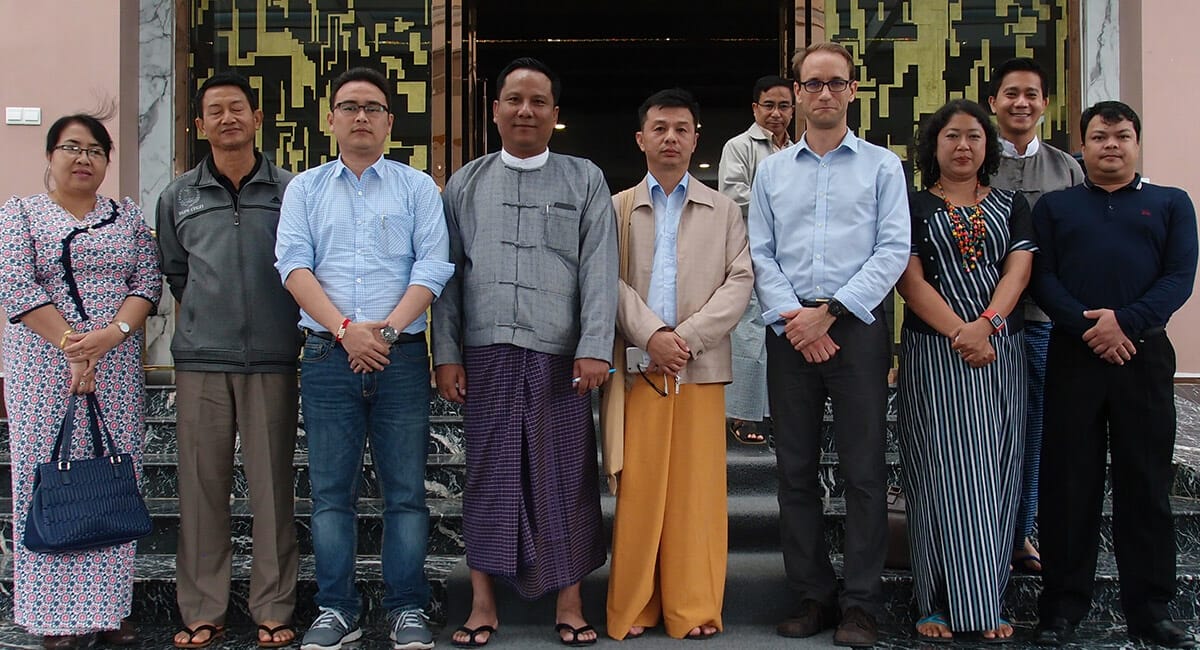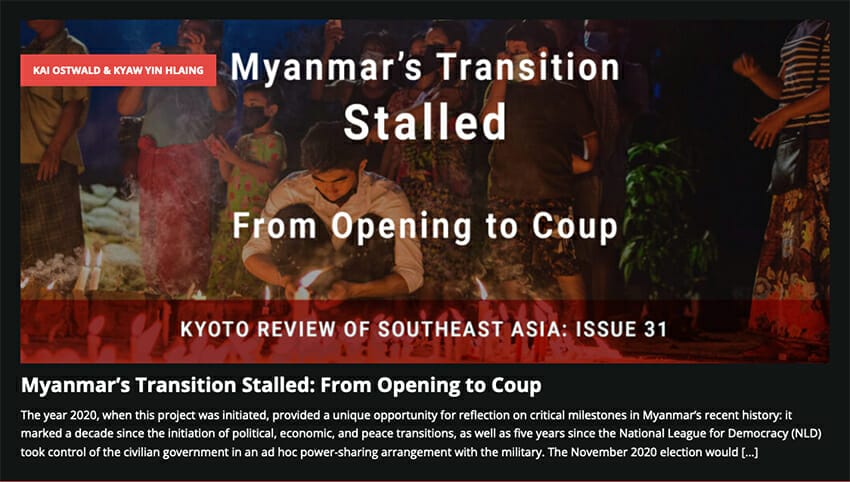UBC Myanmar Intitiative
The Program
The UBC Myanmar Initiative has supported researchers and democratization in Myanmar since 2017. It is enabled by generous support from IDRC’s Knowledge for Democracy Myanmar (K4DM) initiative.
Training
The UBC Myanmar Initiative’s core mandate is to support the emerging generation of researchers working towards democratization in and on Myanmar. Towards that end, it has organized numerous training programs with partners in Myanmar.
- In 2017, 2018, and 2019, the initiative led a three-week intensive training program at the Yangon University of Economics, taught primarily by UBC faculty.
- Amidst the pandemic in 2021, it is providing an innovative online training program for 22 researchers in Myanmar from universities and civil society organizations. The training comprises ten modules that address critical issues facing Myanmar, and is taught by leading experts from UBC and around the world. Further information is available here.
Fellows
The UBC Myanmar Initiative has also supported research on democratization in Myanmar through three types of fellowships.
- First, the participants of the 2021 training program have received support for their engagement and research. Read about some of the UBC Training Program Fellows here.
- Second, leading young researchers at the PhD and Post-Doctoral levels based outside of Myanmar have received support for their research on topics including democratization, peace building, and federalism in Myanmar. Find the profiles of these UBC Myanmar Fellows here.
- Finally, several exceptional Myanmar-based graduate students were brought to UBC’s School of Public Policy and Global Affairs to complete a semester in the MPPGA program as Visiting Fellows. Profiles of the visiting fellows are here.
UBC Myanmar Intitiative
Research
The initiative has also directly funded and produced original research on development and democratization in Myanmar. This includes Issue #31 of the Kyoto Review of Southeast Asia, which contains five articles on aspects of democratization and the coup in Myanmar, and will be published as a book by Kyoto University’s Center for Southeast Asian Studies (KSEAS). Notably, the Issue is Open Access and was translated into Burmese, Japanese, Tagalog, Bahasa Indonesia, Thai, and Vietnamese, making it highly accessible to researchers across Asia.
Other research projects published in outlets including the East Asia Forum (for example this piece by Nyi Nyi Kyaw) have been enabled by support from the initiative. Finally, the initiative supports the Inya Economic Journal, an independent Yangon-based journal that publishes research on sustainable development in Myanmar. This support includes providing the IEJ editorial team with access to academic publications from Singapore's ISEAS-Yusof Ishak Institute.
The initiative also coordinated a Myanmar mini-conference at the 2021 biennial meeting of the Canadian Council for Southeast Asian Studies (CCSEAS). That comprised over ten panels and roundtable discussions that brought together leading scholars of Myanmar (including over a dozen young Burmese researchers) to exchange research insights and practical concerns around continuing constructive engagement with researchers in Myanmar during the coup. It also featured a keynote address by Professor Ardeth Maung Thawnghmung (University of Massachusetts) entitled “Academic Research in Post-coup Myanmar: Challenges in Ethics, Values, Safety, and Best Practices”.



